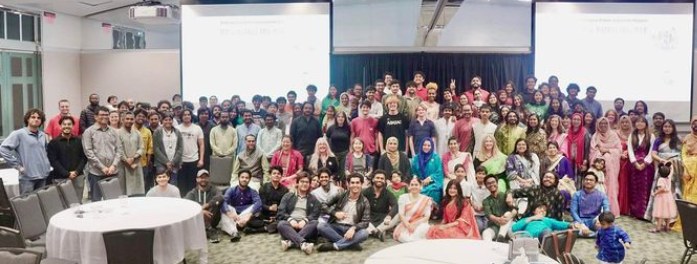On April 15, the Western Kentucky University SGA passed a resolution 19- 10-1 to acknowledge a “debt that will never be paid:” the financial burden on African-American students due to the enslavement and further discrimination of their ancestors.
SGA senator and one of two authors of the resolution Andrea Ambam identified the purpose of the resolution in a statement to the WKU Herald. “The point of a resolution like this is basically to make a huge statement saying that the Student Government Association recognizes the impact that slavery has had on black people today and that changes need to be made,” Ambam said.
According to the National Center for Education Statistics, 15 percent of college students are African-American compared to 58 percent of white college students.
To provide a reason for the disparity, the resolution cited slave masters’ insistence on keeping slaves illiterate as well as currently segregated, underfunded K-12 schools as the cause for the achievement gap between Caucasian and minority students.
To put it simply, Ambam and 18 of her peers are advocating for free tuition for all black students. To ensure the inclusion of all black students, the resolution noted “including undocumented, currently and formerly incarcerated people.”
The authors of the bill as well as the proponents are well-intentioned; however, I find myself having mixed feelings about the resolution.
On one hand, I am in favor of this resolution because the SGA is attempting to recognize the role white supremacy and privilege have undoubtedly played in hindering the education of African-American students, and thus, the professional progress of African-Americans. Having said that, I do acknowledge that all white people were not born wealthy; however, I do believe that white people are less likely to be discriminated against in the workforce due to their skin color.
For example, In 2015 Fortune reported that only nine percent of its Fortune 500 CEOs were not white men; four percent being minorities and five percent being women. To put the reasoning for this simply, people enjoy seeing representation of themselves in TV as well as “real life” because of the ability to be able to identify with people similar to them, which makes them feel safer. Because there are so many white CEOs, I am assuming that comfort played a huge factor in the level of representation of white men. I refuse to believe that there have not been more qualified people of color to take over the job of CEO.
Moreover, a 2015 UCLA study proved that there is negative bias towards African-American males. In summary, participants in the study associated “typical black names” like Darnell, Jamal, and DeShawn with a large, threatening build, bad temper, and low financial status. When questioned about who is more likely to commit a crime: Darnell, Jamal, DeShawn, Connor, Wyatt, or Garrett, the participants were more likely to pick a “black sounding name.”
Clearly, there are hidden prejudices in our society that need to be addressed to stop the vicious discriminatory cycle in the workforce. Therefore, I applaud the WKU SGA for attempting to lessen the financial burden of African-American students, so that they can focus on being successful in their field- even though their risk of facing discrimination remains high after graduation. However, I cannot help but feel like this resolution is poorly timed, but also too accepting.
Before I begin, I must admit that I am speaking from a privileged position. Though WKU’s resolution would apply to me because I am African-American, I am not struggling to pay my tuition due to my parents’ financial status. Having said that, I can say that I have been lucky enough to be in a family who not only values education, but also can provide the money for me to get that education. To my knowledge, no one in my immediate family has struggled to attend college either.
Even with struggling African- American families in mind, I do believe that a resolution like this should not be implemented at universities like WKU where the acceptance rate is 93 percent, the estimated tuition per semester cost is just over 6,000 dollars for in-state students, the required ACT score for admittance is 20, and the required high school GPA is a 2.5. At a glance, the standards appear to be low enough already. Perhaps if the school was more selective, my argument would change.
This is disgustingly elitist and privileged, but if a student is denied acceptance or cannot afford to attend a school like WKU after the help of financial aid, then they should aim lower. Even if this resolution was able to be put into fruition, African-American students who are able to pay should pay and not be given a hand out based on the generalization that all of them are poverty-stricken.
Notably, the WKU’s president Gary Ransdell is not in favor of the legislation put forth by the SGA. In a statement he said, “I have read the SGA resolution, and I understand that their intent was to spark a conversation, but the University will not adopt any such policy. . . We will direct resources, energy and effort toward those methods that are responsible, practical and proven to achieve student success, with a particular focus on underrepresented minorities, low-income and first generation college students.”
The idea of reparations is nice to say the least, but unless you are an African-American, first generation college student, I do not believe that providing reparations in the form of tuition is necessary. Lastly, if reparations were to be given, the federal government should decide on how that would be done.




































